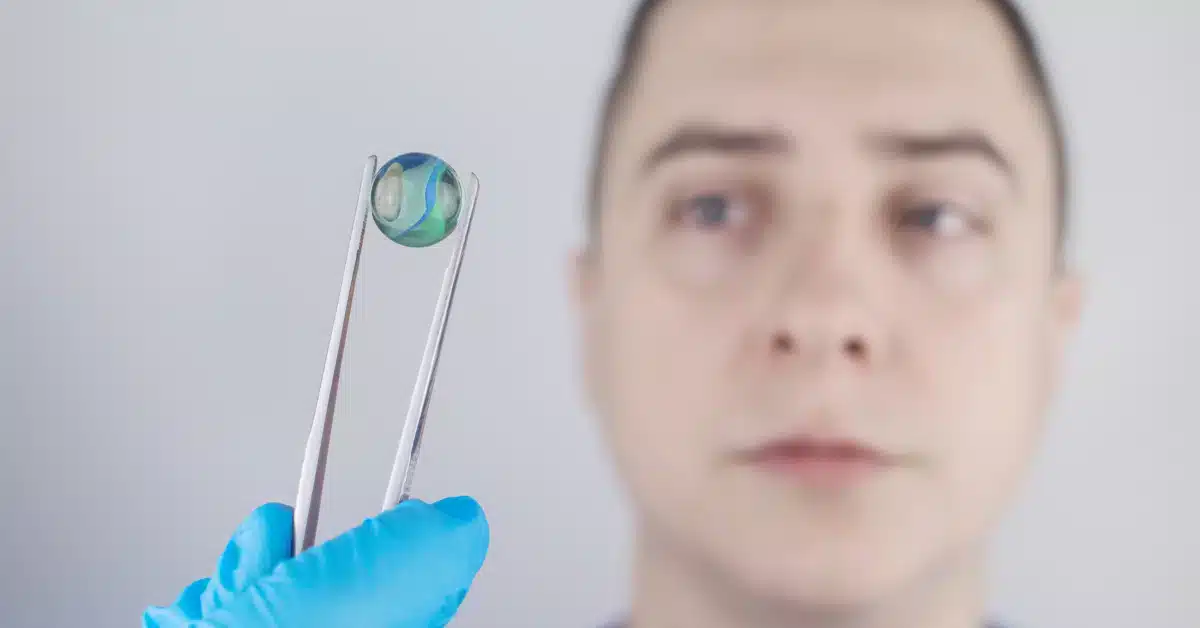Can Cataracts Come Back After Surgery?
Millions of people worldwide suffer from the common eye condition known as cataracts.
The lens of the eye becomes cloudy as a result of this condition.
This results in blurred vision, decreased color perception, and other visual impairments.
While cataracts can be managed with corrective lenses, surgery is often required in severe cases.
The most common complication following cataract surgery is a secondary cataract. It is also known as Posterior Capsule Opacification (PCO).
Five years following cataract surgery, it occurs in 3- 50% of cases.
It is caused by the proliferation and migration of epithelial cells, which results in decreased visual acuity.
Many people wonder if their cataracts will return after surgery.
In this article, we will look at the possibility of cataract recurrence and how to avoid it.
Can cataracts come back after surgery?

The short answer is that cataracts do not return after surgery.
The eye’s cloudy natural lens is removed and replaced with an artificial lens during cataract surgery.
The natural lens cannot become cloudy again because it has been completely removed.
Patients may, however, occasionally experience vision changes or lens capsule clouding. This keeps the artificial lens in place.
This condition is known as Posterior Capsule Opacification (PCO). It is not a recurrence of cataracts.
What is Posterior Capsule Opacification
When the lens capsule becomes cloudy, it causes symptoms similar to cataracts.
This condition is caused by the body’s natural healing process rather than a recurrence of cataracts.
In order to support the artificial lens during cataract surgery, the surgeon leaves behind a thin membrane known as the posterior capsule.
This membrane may blur over time, changing how things appear to the eye.
Prevention and treatment of Posterior Capsule Opacification
Thankfully, PCO can be managed.
YAG capsulotomy, a laser procedure, is the most efficient method of treatment used.
A laser creates a minute opening in the cloudy membrane, allowing light to pass through the lens without restriction.
There is no need for an overnight hospital stay because the procedure is quick and painless.
Following the procedure, most patients notice an immediate improvement in their vision.
Choosing the right kind of artificial lens during cataract surgery can help prevent PCO.
Your surgeon can assist you in choosing the appropriate lens based on your unique needs because some lenses are more prone to PCO than others.
Additionally, it’s crucial to attend all follow-up appointments after cataract surgery.
This will help your doctor to keep an eye on the eye’s overall health and spot any early signs of PCO.
Conclusion

After surgery, cataracts cannot recur, but patients may experience posterior capsule opacification, a condition that manifests visually similar symptoms.
PCO, fortunately, is a treatable condition that can be treated with a quick and painless laser procedure, namely YAG capsulotomy.
PCO can be avoided by using the proper artificial lens and attending all follow-up appointments.
If you notice any visual changes after cataract surgery, contact your eye doctor immediately.
The earlier you seek treatment, the better your chances are of healing from this condition.
Frequently Asked Questions
Can you have cataracts twice?
No, it is impossible to get another cataract. A secondary condition might occur after cataract surgery. It has symptoms similar to that of a cataract. It is often called after-cataract, but in medical terms, it is known as posterior capsular opacity.
How common is it for cataracts to come back?
No, it is not possible for cataracts to come back after surgery. The artificial intraocular lens is unable to grow a cataract. However, the lens capsule may become cloudy after surgery. This leads to blurry vision and thereby creating symptoms similar to cataracts.
How many years does cataract surgery last?
A cataract lens will usually last a lifetime. Here, most patients do not experience any complications with their lenses after cataract surgery.
What age is best for cataract surgery?
There is no recommended age to receive refractive cataract surgery. The development of cataracts takes place after the age of 40. However, people prefer to have an early intervention to restore their vision. Patients prefer to delay their procedure until they get to a more convenient place in life.
WowRx uses only high-quality sources while writing our articles. Please read our content information policy to know more about how we keep our content reliable and trustworthy.






